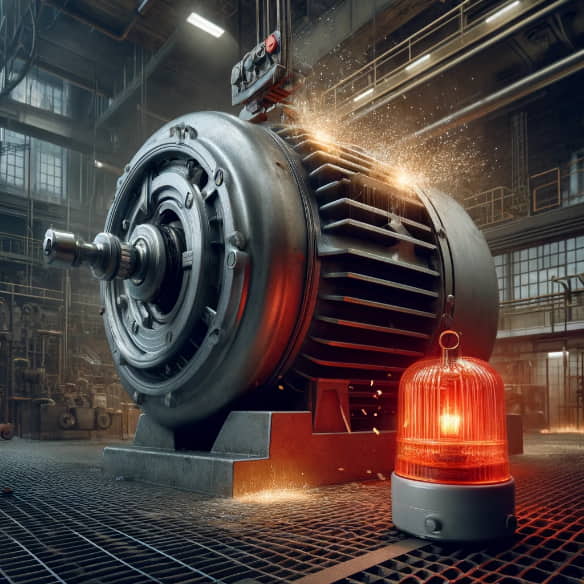Key Features to Look for When Choosing a Motor Failure Alarm System
When it comes to protecting valuable machinery and equipment, a reliable motor failure alarm system is an essential investment. These systems play a crucial role in early detection and prevention of costly breakdowns, ensuring smooth operations and minimizing downtime. As an individual or business owner looking to implement a motor failure alarm system, it’s important to understand the key features that should be considered to make an informed decision.
Sensitivity and Accuracy
One of the primary considerations when choosing a motor failure alarm system is its sensitivity and accuracy in detecting potential issues. The system should be able to monitor the motor’s performance continuously and reliably identify any deviations from normal operating parameters, such as changes in amperage, voltage, or temperature. Advanced systems may even utilize vibration analysis or other advanced diagnostic techniques to provide early warning signs of impending failures.
Look for a system that offers adjustable sensitivity settings, allowing you to customize the alarm thresholds based on the specific requirements of your equipment and operating environment. This ensures that the system is not overly sensitive, triggering false alarms, but also sensitive enough to catch potential problems before they escalate.
Versatility and Compatibility
Motor failure alarm systems should be designed to accommodate a wide range of motor types and sizes, from small fractional horsepower motors to large industrial-scale units. The ability to integrate with various motor brands and models is crucial, as it allows you to utilize the system across your entire facility or equipment fleet.
Additionally, consider the system’s compatibility with your existing electrical and control infrastructure. A versatile system that can seamlessly integrate with your existing equipment, sensors, and building automation systems will provide a more streamlined and efficient solution, minimizing the need for complex integration or additional hardware.
Monitoring and Notification Options
Effective motor failure alarm systems should offer multiple monitoring and notification options to ensure timely awareness of any issues. Look for systems that provide real-time status updates and alerts through a variety of channels, such as:
Local visual and audible alarms: These on-site indicators allow immediate identification of potential problems, enabling quick response by facility personnel.
Remote monitoring and notifications: The ability to receive alerts via email, text messages, or mobile app notifications is essential for monitoring the system remotely and responding to issues even when you’re not on-site.
Integration with building management systems: Seamless integration with your facility’s existing building automation or SCMS (Supervisory Control and Monitoring System) can provide centralized monitoring and streamlined response to motor failure alarms.
By having multiple notification methods, you can ensure that critical information is communicated effectively, allowing you to take prompt action to address the issue and prevent further damage or downtime.
Data Logging and Reporting
Comprehensive data logging and reporting capabilities are crucial for effective motor failure alarm systems. Look for systems that can record and store detailed operational data, including motor performance metrics, alarm histories, and maintenance records.
This data can be invaluable for troubleshooting, trend analysis, and optimizing maintenance schedules. By having access to historical data, you can identify patterns, predict potential failures, and make informed decisions about equipment upgrades, replacements, or preventive maintenance strategies.
Additionally, robust reporting features, such as customizable dashboards and exportable reports, can provide valuable insights to help you better understand the performance and health of your motors over time.
Reliability and Durability
Considering the critical role that motor failure alarm systems play in protecting your valuable equipment, it’s essential to choose a system that is built to withstand the rigors of your operating environment. Look for systems that are designed with industrial-grade components and enclosures, capable of withstanding environmental factors such as temperature, humidity, vibration, and dust.
Reliability is also a crucial factor, as you need to be confident that the system will consistently and accurately monitor your motors, even in the face of power outages or other disruptions. Look for systems that offer backup power options, redundant communication paths, and self-diagnostic capabilities to ensure continuous and reliable operation.
User-Friendly Interface and Ease of Use
The user interface and overall ease of use of the motor failure alarm system should be a key consideration. The system should be intuitive and straightforward to navigate, with clear and meaningful displays of motor performance data, alarm status, and system settings.
Look for systems that offer an intuitive and user-friendly control panel, whether it’s a touch-screen display, a web-based interface, or a mobile app. The ability to easily configure settings, acknowledge alarms, and access historical data can significantly improve the overall user experience and reduce the learning curve for facility personnel.
Additionally, consider the system’s installation and maintenance requirements. A well-designed system should be easy to install, with minimal disruption to your existing infrastructure, and should require minimal ongoing maintenance to ensure reliable operation over the long term.
Conclusion
Choosing the right motor failure alarm system is crucial for protecting your valuable equipment and ensuring uninterrupted operations. By considering factors such as sensitivity, versatility, monitoring options, data logging, reliability, and user-friendliness, you can select a system that meets your specific needs and provides the peace of mind that comes with early detection and prevention of motor failures.
Remember, an effective motor failure alarm system is an investment in the long-term health and performance of your equipment, ultimately contributing to the overall efficiency and profitability of your business. Take the time to research and evaluate the available options, and work with reputable suppliers and experts to find the solution that best suits your requirements.



Leave a Reply